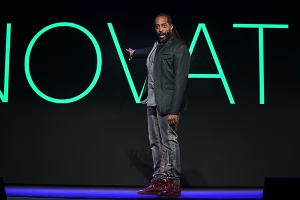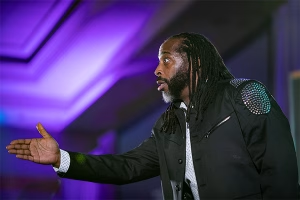Every generation has its call. Every leader faces a question: Will I act — or will I recede? Poetry has long been the language of justice — the tool to name what’s unseen, to demand what’s denied, to imagine what’s possible. When leadership meets poetry — that’s when social impact stops being campaign and becomes convocation.
Why Leaders Need Poetry in the Justice Space
- Justice narratives risk becoming binary or mechanical
- Protests and social movements hinge on emotional engagement
- Leaders steering toward social impact must evoke moral imagination, not just issue literacy
Poetry helps name nuance. It helps carry sorrow and hope. It helps people feel the cost before they move to change it.
The Poet‑Leader’s Mandate
- Name the wound, don’t bury it
Great leaders use poetry to name what many deny — history, trauma, inequity — so healing begins. - Invite empathy through vulnerability
When a leader speaks of their own brokenness, people lean in. That empathy becomes action. - Magnify Margin Voices
Poets train leaders to step back, give mic to those marginalized, and let them speak truth — not as anecdote, but as foundation. - Anchor Impact in Imagination
Vision is future-casting. Poetry makes vision tangible — a line you can feel in your lungs, a future you can see in your bones.
From Poem to Practice
- Justice Keynotes & Public Addresses
A leader doesn’t just announce a new social initiative — they speak a poem that names what must end and what must begin. - Organizational Rites & Memorials
Use poetic ritual in seasons of injustice — readings, testimonies, reflections — to sustain movement, not expend it. - Strategic Narratives Rooted in Story
Policies, grants, impact reports — all told not as bullet points, but as story arcs of disruption and restoration. - Partnerships Anchored in Voice
Engaging communities, NGOs, activists — let the language of justice be shaped in collaborative poetic storytelling, not top-down reporting.
A Vision to Carry Forward
There’s a line in a poem I wrote:
“When the mic rises, the mirror cracks — and we see not one, but many
— voices rising from dust, from dream, from demand.”
That’s not metaphor. That’s mandate.
Leaders who step into the Poet’s Call don’t just manage change. They become its mouthpiece. They don’t just lead organizations. They lead movements. They don’t just speak truth. They sound justice.
If your leadership is called to social impact — carry poetry. Not as decoration — as catalyst. Not as backdrop — as backbone. Let justice find its voice in you, and let your voice demand justice in the world.


